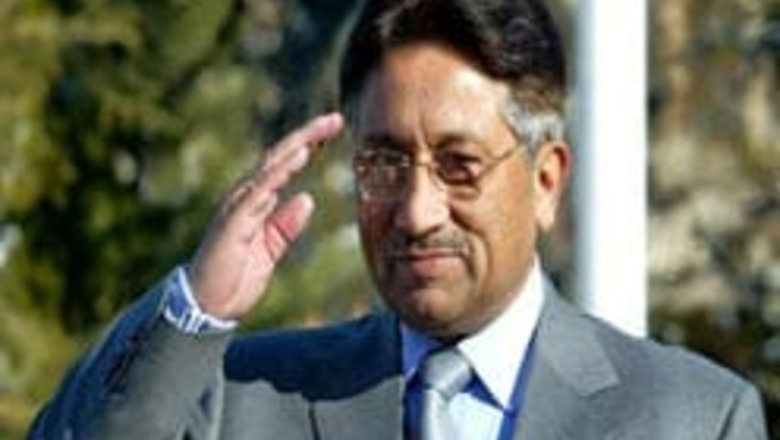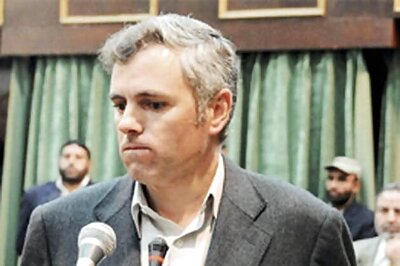
views
Islamabad/Washington: Pakistan President Pervez Musharraf's popularity quotient is a matter of debate among American think tanks who differ if his succession will be smooth and whether his exit could cause chaos, leaving the "nuclear button" in the hands of radical Islamists.
The current issue of National Journal has analysts saying that the army chief is at his "weakest now" and his exit could cause concern about succession. The Pakistan Army is also being scrutinised in the context of its past performance in power.
Musharraf's "only friend in the world" is US President George W Bush, says one analyst.
Analysts also advise that Washington should abandon the tendency to support the military "strongmen" that successive US administrations have tended to support and instead have more faith in civilian leadership.
However, a survey by the International Republican Institute of the US notes Musharraf's "rising popularity" at home and abroad because of his "bold" policies and warns that politicians demanding elections and democracy were losing public support.
On Saturday, Punjab's Law Minister Basharat Raja applauded the survey, of which the APP news agency gave no details of the questionnaires and methodology adopted, as "an eye opener" for Pakistan's politicians.
However, security experts assert that even if Musharraf were to leave the scene, "Pakistan is not likely to descend into anarchy nor will its nuclear weapons fall into terrorist hands, or its government come under the control of mullahs and militants", Daily Times said in a report from Washington.
Analyst Sydney J Freedberg Jr states that the alternatives to the Pakistani military leader do exist, but they "may require consideration sooner rather than later".
PAGE_BREAK
According to Alexis Debat, a former French counter-terrorism official, "Musharraf has never been weaker. His core constituency is the military, and there are indications that he has started to lose that as well."
Debat quotes Stephen Cohen of Brookings as saying: "There's a lot of anxiety about Musharraf's reckless behaviour... Musharraf has one good friend in the world: Bush."
Freedberg calls Musharraf "a consummate institution man, the product of a lifetime in the Pakistani army". He also quotes South Asia expert Marvin Weinbaum who says that were Musharraf "to be taken out tomorrow, there would be strong continuity" because the vice chief of the army would step up.
According to Freeberg, "If the US wants a different future for Pakistan, the experts say that Washington is going to have to adopt a different policy. Americans need to break themselves of the habit of relying on one personable strongman and reach out to people they may dislike. Real change comes slowly, by persuading one person at a time. It does not come from counting on one person at the top."
He quotes Pakistan's ambassador to the US Mahmud Ali Durrani as acknowledging that the military is growing weary of ruling the country.
"Every time a military ruler has come in, the people have welcomed him with open arms. But with passage of time, the shine seems to go away, because it's a difficult country to govern. And for every military leader, believe it or not, one of his major agenda points was to bring back democracy."
Freedberg writes: "Musharraf is not a lonely hero holding his country together. He is just the latest leader to stand precariously atop Pakistan's three ever-shifting tectonic plates - generals, politicians and mullahs. Sooner, not later, he will lose his footing. To understand what might happen next, it's important to understand the three major power centres at work in Pakistan."




















Comments
0 comment